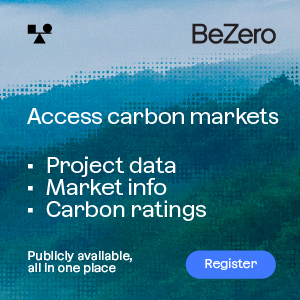The Guangzhou Emissions Exchange this week issued rules for using Guangdong carbon permits as collateral for loans, an increasingly popular way for struggling Chinese companies to get fresh cash, in a move designed to prevent defaults and other irregularities.
As China’s economy is slowing down and the government steers growth away from traditional manufacturing-based activity to more high-tech or service-based ventures, privately owned industry and energy generators find it increasingly tough to get loans from China’s risk-adverse banks.
The seven pilot carbon markets and the soon-to-be launched national emissions trading scheme have offered a new path to funding, as a number of cash-strapped companies have begun using CO2 allowances handed to them for free by the government as collateral when applying for loans.
But risks are high for lenders as most manufacturing industries in China struggle with huge over-capacity problems, and the government has said it wants to use the carbon market to force shutdowns to get rid of some of the surplus capacity.
The exchange, headquartered in the capital of Guangdong province, issued specific provisions aimed at preventing borrowers from default on their CO2 allowance-backed loans.
The rules, which would also limit the scope to commit fraud in connection with such loans, stipulate that:
– The lender and borrower must both be registered with the Guangzhou Emissions Exchange, and the exchange will carry out risk control checks before a loan applicant can proceed with the application.
– Lenders that are not banks will be allowed to participate.
– The exchange will appoint a third-party that will specifically step in and handle potential default situations, though it will not be responsible for guaranteeing that defaulted loans will be compensated.
– If either party breaks the agreement, the faulted party can plead to the exchange to involve the third-party.
– If the pledged permits can’t cover the loan, the lender can file a lawsuit or an arbitrage process.
– Borrowers must authenticate the CO2 allowances they wish to use as collateral. The exchange will verify this and be responsible for keeping records.
– The terms will be agreed by both parties, but based on the market value of the allowances as published by the exchange. Borrowers may need to be prepared to make more allowances available to the lender, though specifics will be hammered out in the contract.
The new rules are the latest move from the pilot markets’ regulators to keep up with developments amid a push from officials to develop more financial products in the carbon trading space.
In September, Guangdong released rules to regulate so-called repo deals.
Interest from financials is considered crucial to attracting more liquidity in the Chinese carbon market, whereas regulators are also aware of the reputational risk involved, after the EU emissions trading scheme a few years ago was rattled by a series of frauds that threatened to undermine public support for it.
By Stian Reklev – stian@carbon-pulse.com
Not yet signed up to CP Daily? Subscribe to our free newsletter here



